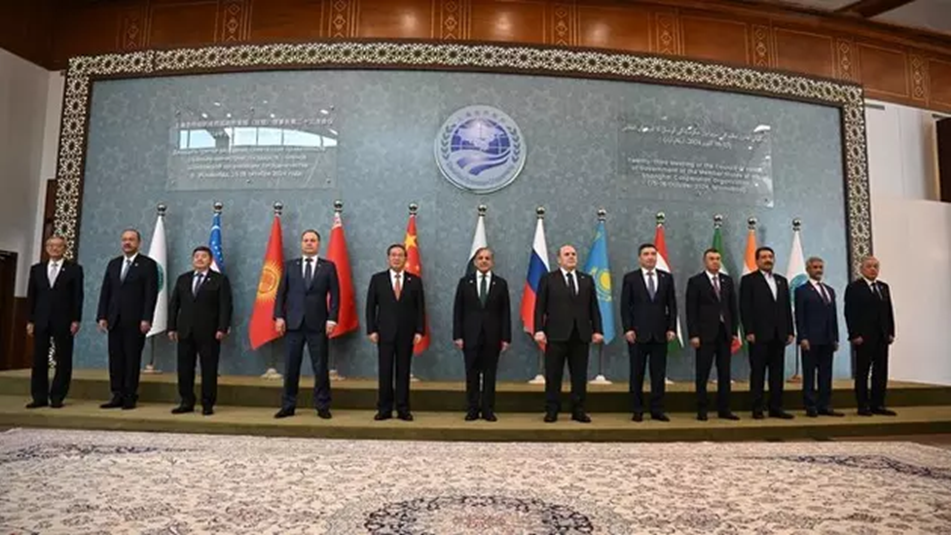The 23rd Shanghai Cooperation Organization (SCO) summit concluded in Islamabad on 16th October 2024, where members signed eight agreements. A joint statement was issued after the summit, highlighting the oppression of the US-led world order and the need to establish an egalitarian rule-based world order.

Key Issues Addressed
The summit garnered global attention due to the volatile situation in the Middle East. These four members, along with Iran, hold significant interest in the Middle Eastern escalation. All the member countries have continuously been protesting the ongoing genocide of innocent civilians in Gaza. Leaders from all the SCO member states have been urging Israel and its accomplices in the persistent genocide for a ceasefire in the Middle East. They had also been warning all the countries involved in this massacre of a greater regional war. However, Israel and its allies have ignored all these warnings and international pleas for peace in Gaza.
Pakistani Prime Minister Shehbaz Sharif raised his voice against the Israeli oppression in Gaza. He stated, “Let me say that we cannot ignore the ongoing genocide in Gaza.” He further added, “The international community bears the responsibility to ensure an immediate and unconditional ceasefire leading to the establishment of the State of Palestine based on pre-1967 borders with Al-Quds as its capital.” The participants supported the United Nations General Assembly resolution urging to promote global peace and development.
Apart from this, the forum had discussions on multiple issues of common interest. The summit aimed to explore different ways to enhance regional economic cohesion through connectivity and trade within the Eurasian security and political bloc. All the SCO member nations agreed to cooperate and work collectively to eradicate poverty while fostering sustainable development and prosperity among the member states.
They also vowed to collaborate to promote inclusive growth and diminish disparities. The joint communique, issued at the end of the two-day summit, strictly rejected the unilateral decisions by the United States, in the rapidly declining unipolar world order. The US holds a history of imposing sanctions, under the pretense of promoting democracy or human rights, on all the countries standing against its oppression and injustices. Iran, Russia, and China are among the key SCO members and global players who are facing US sanctions due to their opposition to its atrocities and war crimes. The joint statement rejected the imposition of unilateral sanctions and trade embargoes by the Western world. It held that no country should have the right to adopt protectionist policies. The communique advocates strengthening the rule-based inclusive and transparent multilateral trading system based on the World Trade Organization’s principles.
The member states agreed to initiate a multilateral trade system among the SCO nations. According to this joint statement, all SCO states agreed to expedite negotiations on establishing an SCO Bank and Fund. The proposed banking system is to provide a substitute for the IMF and the World Bank to all developing nations and countries sanctioned by the West. This asserts that the world is rapidly losing faith in the Western world order and its politicized institutions. SCO members like Pakistan, Iran, and Central Asian nations could gain economic stability by establishing this alternative financial system.
Future Directions and Cooperation
Moreover, the summit emphasized the utilization of technology for the benefit of all the member states. The joint communique said, “It is necessary to effectively utilize the digital economy and scientific and technological innovations to give a new impetus to economic development and progress in the SCO space.” It advocated inclusive and sustainable economic growth of all the SCO members by utilizing the regional potential in different areas. All the member states pledged to collaborate on poverty elevation, health care (traditional and folk medicine), climate change, and the environment. They also agreed to cooperate in promoting agricultural growth, industrial development, and transport connectivity.
Transport connectivity was also one of the major points of discussion at the summit. All SCO members but India appreciated and reaffirmed their support for the Belt and Road Initiative (BRI). The participants also stressed the significance of executing the Concept of Cooperation in the Development of the ‘New Economic Dialogue’ between the member countries. Overall, eight agreements, focusing on issues – such as regional counterterrorism efforts, the SCO budget, and the operations of its secretariat – were signed, and this summit was seen as a huge success for all the member states.
The success of this conference and the gathering of different member states, especially Pakistan, and India – despite their rivalries, have made this summit highly significant. It sent a message to the US and the West that the East is rapidly rising and is ready to replace its hegemony over the globe. The agreement to cooperate on establishing the SCO bank and promoting the digital economy posits that the Eastern world is prepared for de-dollarization. This would not only expedite the decline of the US hegemony but will also render its financial institutions and their sanctions ineffective. This SCO summit and the expansion of BRICS posit that Russia and China are widely recognized as the new superpowers of the rising multipolar world order.
Abbas Hashemite – is a political observer and research analyst for regional and global geopolitical issues. He is currently working as an independent researcher and journalist, exclusively for “New Eastern Outlook”
